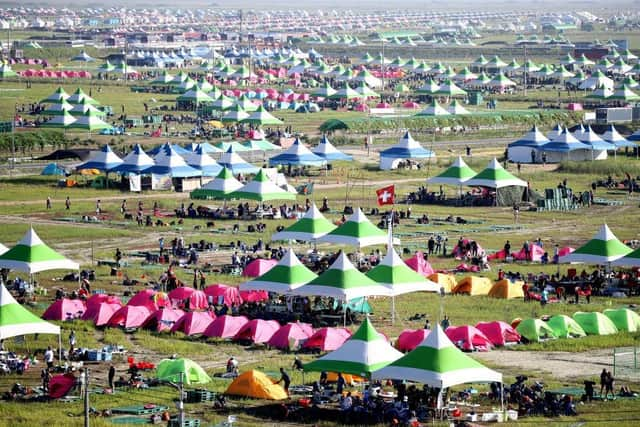Why Bear Grylls' call to "respect extreme weather" is not the message Scouts should be given about climate change
Another week in summer, another deluge of news stories detailing the growing impact of climate change across the world.
In South Korea, a group of British Scouts were among those forced to abandon a Jamboree when severe rains were followed by a period of extreme temperatures and weather forecasters warned that a typhoon was expected. The UK delegation were joined by the US Scouting group in leaving the camp, however, others remained, despite a Covid outbreak adding to the woes of those remaining – one of the few non-weather related issues plaguing the event.
Advertisement
Hide AdAdvertisement
Hide AdThe UK's Chief Scout, adventurer Bear Grylls, spoke out, saying it is important to “respect such extreme weather”.


“It’s such a shame for so many Scouts I know, but I’ve learnt over the years to always respect such extreme weather and temperatures and to act early to prevent disasters,” he said. “So many other adventures lie ahead for these Scouts I know. We will: Improvise. Adapt. Overcome!”
He added: “The truth is, it’s a Jamboree wherever Scouts are.”
The truth actually is, it is all very well to lament the loss of the camp – and for the young people involved, the situation has been not only hugely disappointing, forcing them to abandon the trip of a lifetime, but at times, scary and massively uncomfortable – but its very existence is indicative of why we are suffering such drastic climate change.
Around 4,000 Scouts from the UK alone were flown halfway around the world for an event hosting a total of 43,000 teenagers from all over the globe. The carbon footprint of the flights alone is significant.
Questions need to be asked as to whether teenage Scouts need to meet on such a mass scale, or whether the movement should be taking its own steps towards combating climate change, to combat not just the “disaster” of a blighted jamboree, but a far more serious one.
Meanwhile, as the Scouts moved into air conditioned hotels in South Korean capital, Seoul, and some boarded emergency flights home, we saw a new outbreak of wildfires, this time in Portugal and Hawaii.
On the island of Maui, the deaths of 36 people and 2,000 evacuations were linked to a firestorm caused by a combination of wildfires and hurricane winds, which reduced the town of Lahaina to ash.
Advertisement
Hide AdAdvertisement
Hide AdIn Portugal, around 1,400 tourists and locals were evacuated from properties in the municipality of Odemira, in the Alentejo region as temperatures soared to 46C at the weekend. However, it subsequently spread south towards the Algarve, one of Portugal’s most popular tourist destinations.
The news gave holidaymakers a sense of deja vu, coming just weeks after thousands of people were evacuated from the Greek islands of Rhodes and Corfu amid similarly high temperatures.
This summer’s series of weather-related disasters has been a stark warning to global leaders in the lead-up to climate summit Cop28, which is due to take place in November in Dubai – coming two years after Glasgow hosted the event.
"Respecting” extreme weather, as Mr Grylls suggests, is not enough, we need to take measures to tackle it – and quickly.
Comments
Want to join the conversation? Please or to comment on this article.
